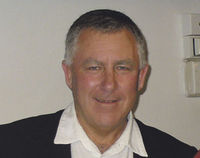Archbishop John Dew celebrated a special Mass for Waitangi Day in St Mary of the Angels. This is an extract from his homily.
‘May the Lord bless us and keep us;
May the Lord let his face shine on us and be gracious to us;
May the Lord bring us peace.’
 This is a blessing we call on for our whole country as we celebrate Waitangi Day. May God bring us peace.
This is a blessing we call on for our whole country as we celebrate Waitangi Day. May God bring us peace.
This year marks the 20th anniversary of the New Zealand Catholic Bishops’ statement for the 150th commemoration of the Treaty of Waitangi. This is the covenant, the sacred taonga, on which the bicultural partnership of our country is founded.
In New Zealand we are blessed with peoples from many races and nations. The Treaty of Waitangi provides the moral basis for the presence of all other peoples in Aotearoa-New Zealand: not only from Europe, but also later waves of immigrants from the Pacific, Asia, Africa and Latin America. Of special concern are those who have come as refugees from war-torn countries or where they have experienced persecution for their religious beliefs or political convictions.
In the future we may also need to welcome and accept environmental refugees, especially our nearest neighbours in the Pacific.
The Treaty and, more importantly, the gospel call us to see that all people are treated with respect and given the dignity they deserve as daughters and sons of God.
‘…your Father in heaven causes his sun to rise on bad as well as good, and his rain to fall on honest and dishonest alike. For if you love those who love you, what right have you to claim any credit? Even the tax collectors do as much, do they not? If you save your greetings for your brothers and sisters, are you doing anything exceptional? Even the pagans do as much, do they not?’
In 1990 the New Zealand bishops called on all the people of this land to celebrate the 150th anniversary of the signing of the Treaty of Waitangi in the spirit of the biblical jubilee. In particular, we were asked to undertake the twin tasks of renewal and reconciliation.
We affirmed, in line with the tradition and teaching of the church, the right of tangata whenua to land, and a social and political organisation which would allow them to preserve their cultural identity.
Looking back on these 20 years, we can see great strides that have been taken:
- the identification and resolution of many claims to the Waitangi Tribunal
- a deeper knowledge and appreciation of te reo and tikanga Maori in the life of the church, as in wider society
- greater access for Maori to higher education and leadership roles.
Today, on the 170th anniversary of the signing of the Treaty of Waitangi, we cannot turn our backs on the continuing glaring poverty gap between Maori and non-Maori populations, and their access to basic social services – residual racism that reveals itself in words and actions.
Just three weeks ago I was in Waitangi for a few days. This time incorporated the anniversary of the first Mass Bishop Pompallier celebrated on January 13. Because we were right beside the Treaty Grounds we obviously reflected on his presence at the signing – we know that his concern was for people to live with dignity, the dignity that freedom of religion brings, and that living the gospel brings to human life.
That is gospel wisdom; it is what St James says about the wisdom that will guide us through the issues surrounding the Treaty.
He speaks of ‘The gentleness of wisdom’ … ‘that comes from above … that is peaceable, kindly and considerate, full of mercy and shows itself by doing good … nor is there any trace of partiality or hypocrisy’ (Jas 3:17).
St James reminds us: ‘The peace sown by peacemakers brings a harvest of justice’. Are we magnanimous enough – generous enough – to be willing to sow the seeds of peace … even in the face of great injustice … in the hope – the conviction – that this peace will bring a harvest of justice?
This is the perfection of life Jesus is speaking about in the gospel: ‘Be perfect, just as your heavenly father is perfect’. It is God’s love, God’s compassion, God’s peace, God’s justice that we are called to mirror as we enter 2010 with this celebration of Waitangi Day.
‘God has let his face shine on us and has been gracious to us … God has shown us his face and brought us peace’ … in turn will we do this for others?